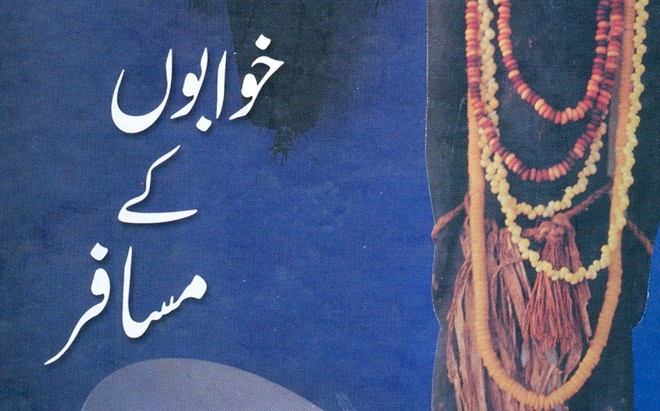
The plays of Intizar Husain are not about some significant issue or an overwhelming question but about the everyday lives of ordinary women and men

Intizar Husain’s contribution as a playwright has been overshadowed by his fame as a short story writer, novelist, columnist and critic. One reason could be that he was not as prolific as a playwright. But he did write plays both for stage and television. These did not get him the same response as the other forms.
Intizar Husain did not entertain a lot of action on stage or television. It is assumed that a play should have the concreteness of action as this is what distinguishes it from the narrative of a novel. Like his fiction, the themes of his plays too could not be spelled out in the concreteness of action; rather, they dealt with feelings and a gamut of emotions which, in a society driven by the virtue of action, may be considered as obstacles in the way of taking a decisive step.
For Intizar Husain, the greatest writer was Chekov. If one understands the relationship of the two then the plays of Intizar Husian become easier to interpret and relate to.
Chekov was the master of the unsaid, the unstated. In wanting to capture those thought and ragtag emotions that may not even be there in any tangible form or shape, he moved between the certainty of desire and the total uncertainty of how to achieve it; with the result that the difference between dream and reality becomes totally fluid and amorphous.
Chekhov’s characters do not know the certainty of the present but are fully conscious of the certainty of the past. They do not know what is missing but they know that something is and there is a whole new attitude, a behaviour pattern, that has come to be known as boredom. Before him, there was more definitiveness to human emotions and actions that did not whittle in the midst of what the French called ennui.
One big impediment has been the lack of a tradition of writing plays for the stage here. In the nineteenth century, a new movement took place and much was written for the Parsi stage. Later, another form was developed to some extent, necessitated by the advent of the new medium -- the radio. But the latter did not take into consideration the wherewithal of the stage and the market forces, with the result that what most serious playwrights wrote was good for radio but not good enough for stage.
No independent strain of writing for the stage developed in serious writings and what was written for the Parsi stage, till the third decade of the twentieth century, got absorbed in the growing medium of the film. The streams of stage/film and radio plays flowed parallel and, consciously, the two were kept separate.
Like the mentor, the plays of Intizar Husain are not about some significant issue or an overwhelming question but about the everyday lives of ordinary women and men who go about their daily business with their dreams, wishes, heartbreaks and desires in a non-romantic manner. The characters are all drawn from middle class backgrounds, engaged in their existential concerns, making adjustments to the changing times. These adjustments are not traumatic but small and minor or so they appear to be and, in the long run, accumulated to pose as fundamental ones and leave a lasting impression or cast a long shadow.
These characters may be drawn from a family, especially the women, for they seemed for the playwright to flower more in the domestic environment, making adjustment to the changing nature of relationship within the family, while clinging on to something that is fundamental to their nature. There may have been change but it is not violent enough to bring about a change of stance or responsibilities.
The fundamental change of partition that one finds running through the fiction of Intizar Husain is not there in full view, rather it operates behind the scenes in the behavioral patterns while grating with the basic issues that lurk and do not go away.
The collection Khwabon ke Musafir consists of seven plays -- five of them original --three written for the stage and two for television. Two other plays have been adaptations of Vijay Tendulkar and Thornton Wilder.
The stage play in India, not only in Urdu but in other languages like Marathi and Bengali, is quite good. One reason could be that there has been a consistency of theatre practice across the length and breadth of India. The various plays in different languages draw inspiration and strength from each other, thus maintaining a certain standard which the inconsistent theatre tradition in Pakistan has not been able to pull through. Most of our playwrights have not been familiar with the plays written and performed in India; the lack of free flow of information, ideas and creative activity may have harmed the growth of arts on both sides of the border.
Intizar Husain as a fiction writer is much applauded in India and his works have been translated in a number of Indian languages. But very few of the Indian plays in the various languages have been translated or adapted in local languages here. The translation by Intizar Husain of Tendulkar’s play was thus a good initiative and it should have been followed by many others too here.
Asif Farrukhi in his introduction to the collection has attempted to draw a relationship of the novels and short stories with the plays, and placed them within the overall developing sensibility of Intizar Husain as a writer of fiction. He has thus identified that the plays should be read with the fiction to be fully in line with the changes that were taking place in Intizar Husain’s creative outlook.